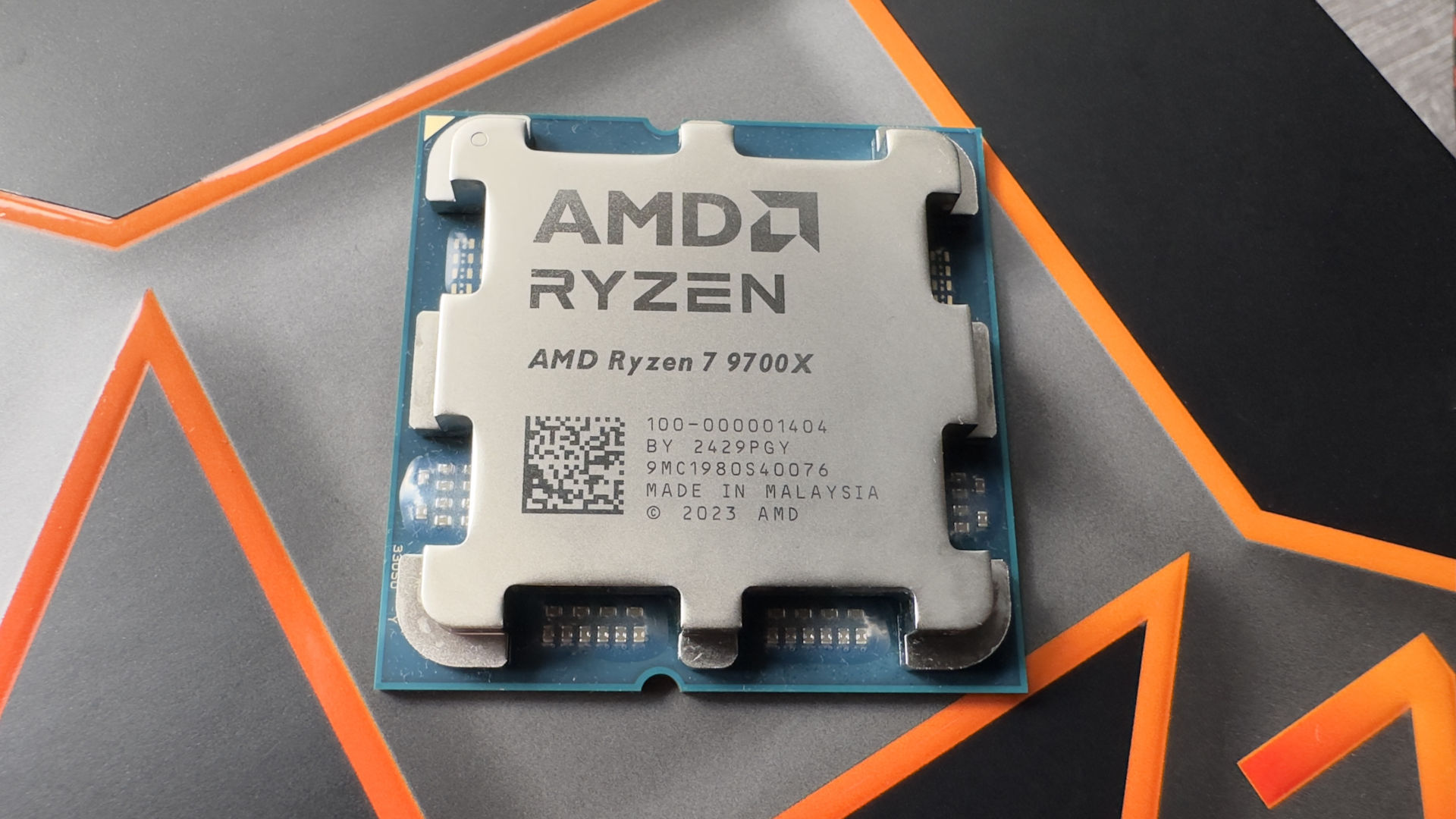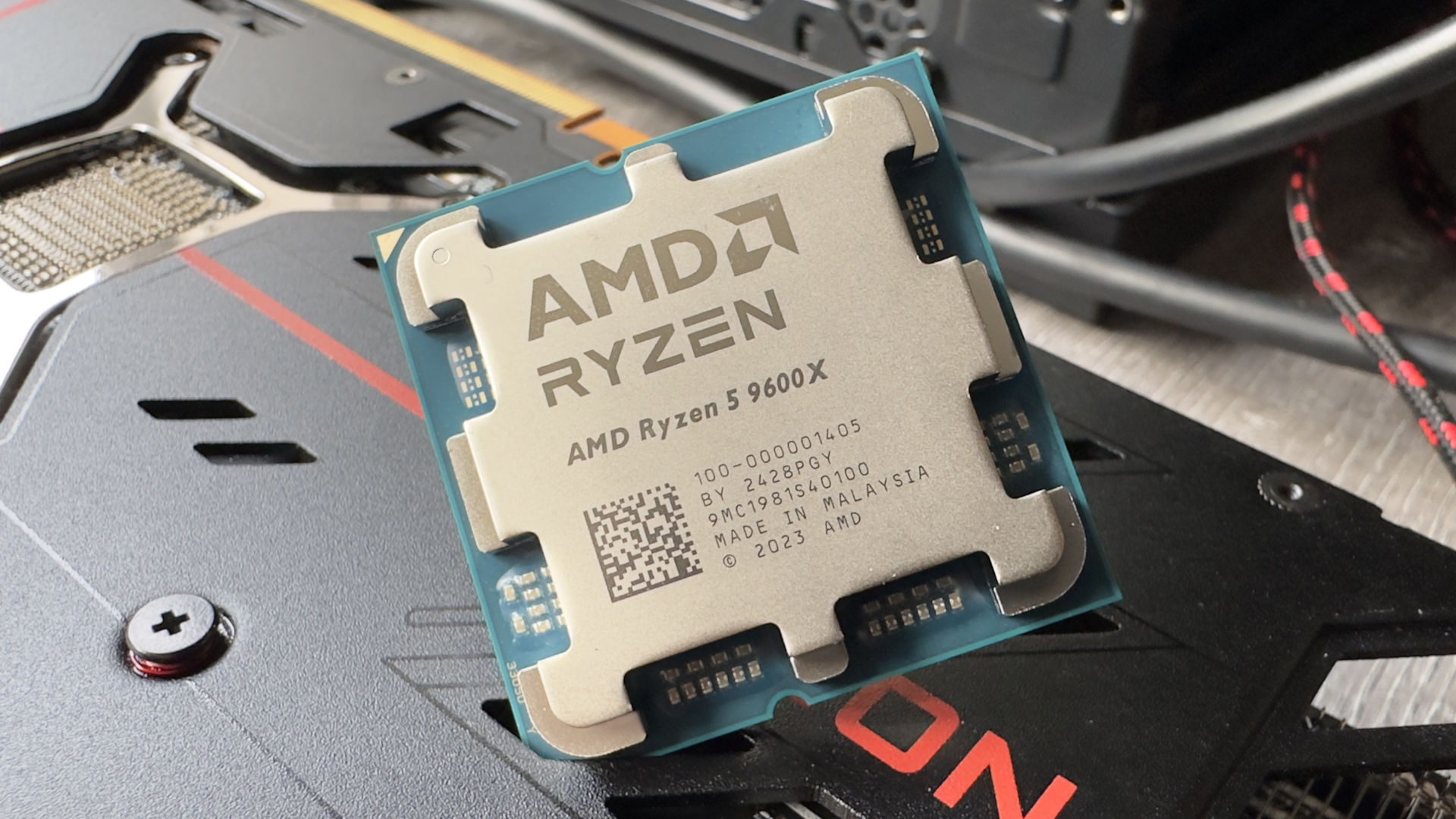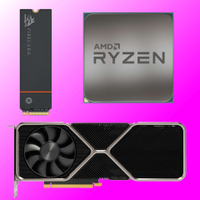
The recently launched AMD Ryzen 5 9600X and Ryzen 7 9700X have been the subject of much… apathy? Indifference? Underwhelm? Take your pick. The epitome of these Zen 5 architecture chips has probably been the whole "Zen 5%" meme, referring to a mere 5% (or thereabouts) increase in performance. It's not that these new chips are bad—far from it—they're just not good enough for the cost.
It's of little surprise, then, that we hear they're not selling all too well—at least if Mindfactory's sales numbers (via TechPowerUp) are anything to go by. At the time of writing, the website says that "over 20" 9600X SKUs and "over 30" 9700X SKUs have been sold.
There are many possible reasons for these low sales numbers. For one, it's only a few days since these CPUs hit the shelves and people are still waiting for even more to do so. PC gamers are likely waiting to see what a 9000-series X3D CPU will be like—X3D referring to the 3D V-Cache that currently adorns the best gaming CPU, the AMD Ryzen 7 7800X3D.
People are also probably waiting to see what next-gen Intel chips (codename Arrow Lake) have in store. The latest rumours suggest that these 15th Gen Intel chips could consume up to 100 W less power at high frequencies than the 14th Gen ones (this being a spark of light during a dark time for Intel given the 13th/14th Gen stability issues).
I must say, though, it wouldn't make much sense for efficiency to be what people are waiting for, because say what you want about the 9600X and 9700X, they are at the very least efficient. In Nick's testing of these 65 W TDP chips, he found them both to sip power and remain plenty cool even under load.
Performance isn't entirely unreasonable, either, especially for the 9700X, which does seem like the better value chip given its two extra cores vs the 9600X's six-core layout. Where the 9600X pales compared to the Intel Core i5 14600K in multi-threaded workloads, the 9700X, while still behind, gives a better run for its money and is even better in some real-world use cases, such as photo editing. The two extra cores probably explains the higher (but still low) Mindfactory sales figures for the 9700X.

The real problem with both of these chips, however, is their cost. Yes, the Zen 5 chips' $279 and $359 MSRPs are technically slightly cheaper than the Ryzen 5 7600X and Ryzen 7 7700X MSRPs at launch. But they're far more expensive than these chips today. Right now, you can pick up a 7600X for $195 and a 7700X for $265 on Amazon. And these chips aren't that much worse than their current-gen replacements.
Keep up to date with the most important stories and the best deals, as picked by the PC Gamer team.
The question is, why would anyone opt for a "Zen 5%" increase in performance for that amount of extra cash, especially when even more next-gen chips should be just around the corner? It seems people are realising that now might not be the time to upgrade.
I can't also help but wonder how much damage Intel's stability issues have done to consumer confidence in chips in general, either. Perhaps (and this is very speculative) some are doubting whether they can trust new and largely untested chips, and are wondering whether they could simply degrade and fail further down the line.
Best CPU for gaming: Top chips from Intel and AMD.
Best gaming motherboard: The right boards.
Best graphics card: Your perfect pixel-pusher awaits.
Best SSD for gaming: Get into the game first.

Jacob got his hands on a gaming PC for the first time when he was about 12 years old. He swiftly realised the local PC repair store had ripped him off with his build and vowed never to let another soul build his rig again. With this vow, Jacob the hardware junkie was born. Since then, Jacob's led a double-life as part-hardware geek, part-philosophy nerd, first working as a Hardware Writer for PCGamesN in 2020, then working towards a PhD in Philosophy for a few years (result pending a patiently awaited viva exam) while freelancing on the side for sites such as TechRadar, Pocket-lint, and yours truly, PC Gamer. Eventually, he gave up the ruthless mercenary life to join the world's #1 PC Gaming site full-time. It's definitely not an ego thing, he assures us.


